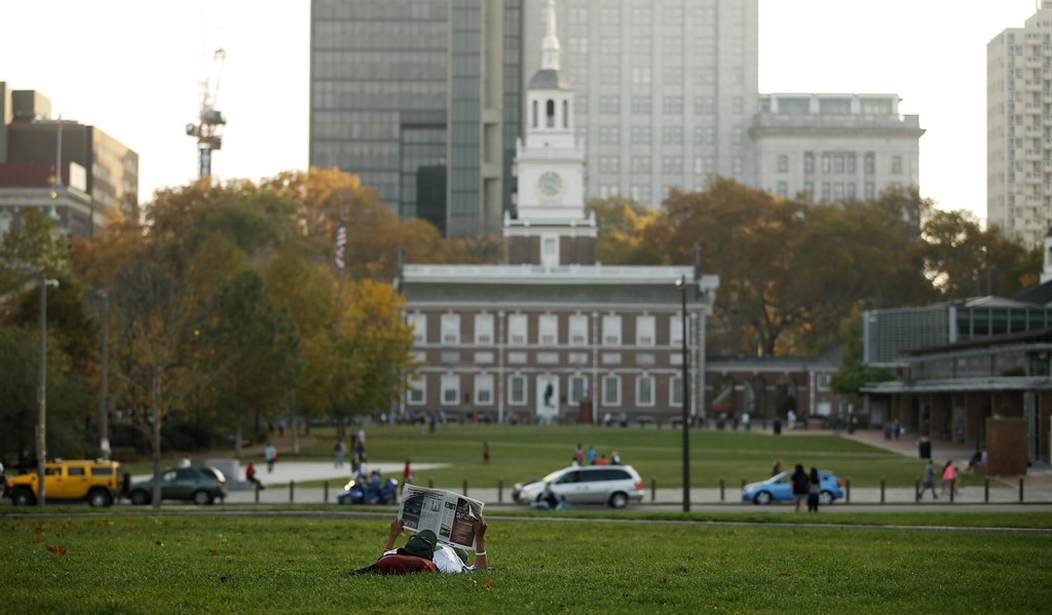Many of my columns speak highly of the wisdom of our nation's founders. Every once in a while, I receive an ugly letter sarcastically asking what do I think of their wisdom declaring blacks "three-fifths of a human." It's difficult to tell whether such a question is prompted by ignorance or is the fruit of an ongoing agenda to undermine American greatness. Let's examine some facts about our founders and slavery.
At the time of the 1787 Constitutional Convention, slaves were 40 percent of the population of southern colonies. Apportionment in the House of Representatives and the number of electoral votes each state would have in presidential elections would be based upon population. Southern colonies wanted slaves to be counted as one person. Northern delegates to the convention, and those opposed to slavery, wanted to count only free persons of each state for the purposes of apportionment in the House of Representatives and the Electoral College. The compromise reached was that each slave would be counted as only three-fifths of a person.
If the convention delegates had not reached this compromise, the Constitution would have not been ratified and there would not have been a Union. My questions to those who criticize the three-fifths clause are twofold. Would it have been preferable for the southern states to be able to count slaves as whole persons, thereby giving southern states more political power? Would blacks have been better off without constitutional ratification and a Union made possible by the three-fifths compromise? In other words, would blacks have been better off with northern states having gone their way and southern states having gone theirs and, as a consequence, no U.S. Constitution and no Union? Abolitionist Frederick Douglass understood the compromise, saying that the three-fifths clause was "a downright disability laid upon the slaveholding states" that deprived them of "two-fifths of their natural basis of representation."
Recommended
Patrick Henry expressed the reality of the three-fifths compromise, saying, "As much as I deplore slavery, I see that prudence forbids its abolition." With union, Congress at least had the power to abolish slave trade in 1808. According to delegate James Wilson, many believed the anti-slave-trade clause laid "the foundation for banishing slavery out of this country."
Many founders openly condemned slavery. George Washington said, "There is not a man living who wishes more sincerely than I do to see a plan adopted for the abolition of it." John Adams: "Every measure of prudence ... ought to be assumed for the eventual total extirpation of slavery from the United States. ... I have, throughout my whole life, held the practice of slavery in ... abhorrence." James Madison: "We have seen the mere distinction of color made in the most enlightened period of time, a ground of the most oppressive dominion ever exercised by man over man." Benjamin Franklin: "Slavery is ... an atrocious debasement of human nature." Franklin, after visiting a black school, said, "I ... have conceived a higher opinion of the natural capacities of the black race than I had ever before entertained." Alexander Hamilton's judgment was the same: "Their natural faculties are probably as good as ours." John Jay wrote: "It is much to be wished that slavery may be abolished. The honour of the States, as well as justice and humanity, in my opinion, loudly call upon them to emancipate these unhappy people. To contend for our own liberty, and to deny that blessing to others, involves an inconsistency not to be excused."
Completely ignored in most discussions of slavery is the fact that slavery was mankind's standard fare throughout history. Centuries before blacks were enslaved Europeans were enslaved. The word slavery comes from Slavs, referring to the Slavic people, who were early slaves. What distinguishes the West, namely Britain and the U.S., from other nations are the extraordinary measures they took to abolish slavery.

























Join the conversation as a VIP Member